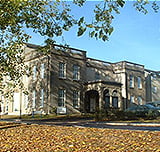
Mr Edward Tayton
Mr Edward Tayton is a Consultant Orthopaedic Surgeon in Berkshire, Reading who specialises in hip and knee replacements
Diagnosis of all aspects of hip and knee pain, Total knee replacement, Partial knee replacement, Keyhole surgery to the knee, Computer navigated knee replacement (Private Patients only), Total Hip Replacement, Hip and Knee joint injections, Shockwave therapy (Private Patients only).
He is a substantive consultant locally at the Royal Berkshire Hospital, where the most complex hip and knee surgery for the area is undertaken.
He is fully UK trained and in addition has undertaken two fellowships, including complex revision hip and computer navigated knee replacement surgery in Auckland, New Zealand and a further UK based fellowship in all aspects of hip surgery.
Mr Tayton is also part of the Reading Hip and Knee Unit: readinghipandkneeunit.co.uk
British Orthopaedic Association
Royal College of Surgeons of England
Medico Legal: Panel expert for Premex Plus, SM legal services and Specialist Info.
Mr Tayton has been heavily involved in cutting edge research throughout his training. He has published over 20 research articles in top journals.
He has held a full time research position at the University of Southampton where his work on stem cells and tissue engineering in orthopaedics, led to the award of a PhD in 2014. He won numerous prizes for the work including the Translational Research Award and Gauvain Prize, as well as gaining a patent for a novel regenerative scaffold that he developed: The scale-up of a tissue engineered porous hydroxyapatite polymer composite scaffold for use in bone repair: An ovine femoral condyle defect study. J Biomed Mater Res A. 2015 Apr;103(4):1346-56
He also gained a Master of Science Degree from the University of Cardiff in 2009 for his work on a novel flexible stemmed hip implant to reduce the risk of fracture post hip replacement: Mapping the Strain Distribution on the Proximal Femur of a Titanium and Flexible Stemmed Implant: A Novel Use for Digital Image Correlation. J Bone Joint Surg Br. 2010 Aug;92(8):1176-81.
His most recent paper on reducing infection in Knee Replacement Surgery was highlighted as one of the most important of 2016 by the Bone and Joint Journal:The Impact of Patient and Surgical Factors for Primary Knee Arthroplasty Infection: An analysis of 64,566 joints from the New Zealand Joint Registry Bone Joint J. 2016 Mar;98-B(3):334-40
At his local NHS base he is dedicated to passing on skills to the next generation of surgeons. He supervises numerous junior doctors, and holds a Post Graduate Certificate in Medical Education (PGCE).
His current research interests lie in novel predictive tools for outcomes after joint replacement surgery, as well as robotic surgery for joint replacement.
Based at
NHS base
Royal Berkshire Hospital
GMC Number
6052801
Clinic Timetable
Clinical interests
Diagnosis of all aspects of hip and knee pain, Total knee replacement, Partial knee replacement, Keyhole surgery to the knee, Computer navigated knee replacement (Private Patients only), Total Hip Replacement, Hip and Knee joint injections, Shockwave therapy (Private Patients only).
He is a substantive consultant locally at the Royal Berkshire Hospital, where the most complex hip and knee surgery for the area is undertaken.
He is fully UK trained and in addition has undertaken two fellowships, including complex revision hip and computer navigated knee replacement surgery in Auckland, New Zealand and a further UK based fellowship in all aspects of hip surgery.
Mr Tayton is also part of the Reading Hip and Knee Unit: readinghipandkneeunit.co.uk
Professional Memberships
British Orthopaedic Association
Royal College of Surgeons of England
Medico Legal: Panel expert for Premex Plus, SM legal services and Specialist Info.
Academic Background
Mr Tayton has been heavily involved in cutting edge research throughout his training. He has published over 20 research articles in top journals.
He has held a full time research position at the University of Southampton where his work on stem cells and tissue engineering in orthopaedics, led to the award of a PhD in 2014. He won numerous prizes for the work including the Translational Research Award and Gauvain Prize, as well as gaining a patent for a novel regenerative scaffold that he developed: The scale-up of a tissue engineered porous hydroxyapatite polymer composite scaffold for use in bone repair: An ovine femoral condyle defect study. J Biomed Mater Res A. 2015 Apr;103(4):1346-56
He also gained a Master of Science Degree from the University of Cardiff in 2009 for his work on a novel flexible stemmed hip implant to reduce the risk of fracture post hip replacement: Mapping the Strain Distribution on the Proximal Femur of a Titanium and Flexible Stemmed Implant: A Novel Use for Digital Image Correlation. J Bone Joint Surg Br. 2010 Aug;92(8):1176-81.
His most recent paper on reducing infection in Knee Replacement Surgery was highlighted as one of the most important of 2016 by the Bone and Joint Journal:The Impact of Patient and Surgical Factors for Primary Knee Arthroplasty Infection: An analysis of 64,566 joints from the New Zealand Joint Registry Bone Joint J. 2016 Mar;98-B(3):334-40
At his local NHS base he is dedicated to passing on skills to the next generation of surgeons. He supervises numerous junior doctors, and holds a Post Graduate Certificate in Medical Education (PGCE).
His current research interests lie in novel predictive tools for outcomes after joint replacement surgery, as well as robotic surgery for joint replacement.